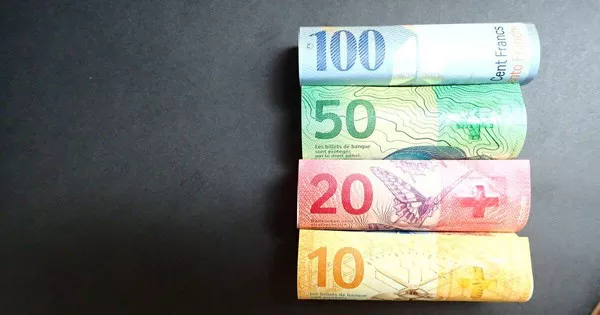Switzerland, renowned for its stunning landscapes, high-quality chocolates, and precision watches, is also known for its strong currency, the Swiss franc (CHF). If you’re planning a trip to Switzerland, it’s essential to understand the currency dynamics to ensure a smooth financial experience. In this article, we will explore the best currency to take to Switzerland and provide valuable insights to help you make informed decisions.
Understanding the Swiss Franc
The Swiss franc (CHF) is the official currency of Switzerland and Liechtenstein. It is widely regarded as a safe-haven currency due to Switzerland’s political stability, robust economy, and low inflation rates. The Swiss National Bank (SNB) is responsible for issuing and managing the currency. The Swiss franc is divided into 100 centimes and is available in both coins and banknotes.
Using the Swiss Franc in Switzerland
While traveling in Switzerland, the local currency, the Swiss franc, is widely accepted and recommended for most transactions. Cash is still widely used in Switzerland, and it’s advisable to have some Swiss francs on hand for smaller purchases, transportation, and situations where card payments are not accepted. Coins are available in denominations of 5, 10, 20, and 50 centimes, as well as 1, 2, and 5 francs. Banknotes come in denominations of 10, 20, 50, 100, 200, and 1,000 francs.
Foreign Currency Exchange
If you don’t have Swiss francs before arriving in Switzerland, you can exchange your currency for Swiss francs at various exchange offices, banks, and airports. However, it’s important to be cautious about where you exchange your money, as some places may charge high fees or offer unfavorable exchange rates. To obtain the best rates, it’s recommended to compare rates at different exchange offices or withdraw Swiss francs from ATMs using your debit or credit card.
Credit and Debit Cards
Credit and debit cards are widely accepted in Switzerland, particularly in larger establishments, hotels, and restaurants. Visa and Mastercard are the most commonly accepted cards, followed by American Express and Diners Club. However, it’s always advisable to carry some cash with you, as smaller businesses and local establishments may not accept cards, or there may be minimum purchase requirements for card payments.
Before traveling to Switzerland, it’s crucial to inform your bank or credit card company about your trip to ensure that your cards are not blocked due to suspicious activity. Additionally, inquire about any foreign transaction fees or currency conversion charges that may apply when using your card abroad.
Currency Exchange Services and ATMs
Currency exchange services and ATMs are readily available throughout Switzerland, offering convenient options for obtaining Swiss francs. ATMs, also known as Bancomats, can be found in banks, shopping centers, train stations, and other public areas. They usually provide instructions in multiple languages and accept major debit and credit cards. However, be mindful of any fees that may be charged by your bank for international ATM withdrawals.
When using currency exchange services or ATMs, it’s essential to compare rates and fees to ensure you’re getting the most favorable deal. Some exchange offices may charge higher fees or offer less competitive rates than others. Consider exchanging larger amounts at once to minimize the impact of transaction fees.
Traveller’s Cheques
While traveller’s cheques were once a popular form of payment during international travel, their usage has significantly declined over the years. In Switzerland, acceptance of traveller’s cheques is limited, and it can be challenging to find places that will cash them. Additionally, the fees associated with traveller’s cheques, such as commission charges and exchange rate markups, can be higher compared to other payment methods. Therefore, it is generally not recommended to rely solely on traveller’s cheques for your currency needs in Switzerland.
Digital Payment Methods
Digital payment methods, such as mobile wallets and contactless cards, are gaining popularity in Switzerland. Services like Apple Pay, Google Pay, and Samsung Pay are widely accepted in larger establishments. Contactless payments with cards are also prevalent, making transactions quick and convenient. However, it’s advisable to have a backup payment method, such as cash or traditional cards, as some smaller businesses may not accept digital payments.
Conclusion
When traveling to Switzerland, it’s advisable to have Swiss francs on hand for day-to-day expenses. The Swiss franc is widely accepted, and cash is still commonly used, particularly in smaller establishments. However, credit and debit cards are widely accepted in larger establishments and are a convenient option for larger purchases. Be sure to inform your bank about your travel plans and inquire about any fees or charges that may apply when using your cards abroad.
To obtain Swiss francs, you can exchange your currency at various exchange offices or withdraw from ATMs. Compare rates and fees to ensure you’re getting the most favorable deal. Avoid relying solely on traveller’s cheques due to limited acceptance and higher fees. Additionally, digital payment methods are gaining popularity, but it’s wise to have alternative payment options, particularly in smaller establishments.
By understanding the currency dynamics and planning your currency needs in advance, you can ensure a smooth and hassle-free financial experience during your visit to Switzerland.
Related Topics:

























